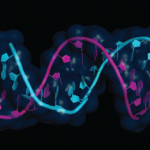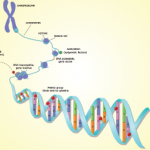WASHINGTON, D.C.—Although genes clearly play a role in the prevalence of rheumatoid arthritis (RA), that role may be less influential than scientists once believed. Other factors may influence susceptibility more, including epigenetics, innate immunity, and even preventable environmental stresses like cigarette smoking.
“Susceptibility to RA is more than our genes,” said Gary S. Firestein, MD, professor of medicine and dean of translational medicine at the University of California, San Diego School of Medicine. Dr. Firestein delivered the Rheumatology Research Foundation’s Edward D. Harris, Jr. Memorial Lecture, “Pathogenesis of Rheumatoid Arthritis: The Voyage from Pre-Rheumatoid Arthritis to Joint Destruction,” at the 2012 ACR/ARHP Annual Meeting, held here November 9–14. [Editor’s Note: This session was recorded and is available via ACR SessionSelect at www.rheumatology.org.] His research on the origins of RA was conducted in collaboration with William Arend, MD, at the University of Colorado, Denver.
Before classic symptoms of RA appear, what occurs at the cellular level to lay the groundwork for disease development? A particular genetic makeup is merely one component of the pathway to RA, said Dr. Firestein. “Genes are ‘predetermined’ influences. They help define who we are, but then this is influenced by epigenetics, environment, and innate immunity.”
Past research into the role of T cells, B cells, cytokines, and antigen-presenting cells, and how their interactions lead to synovial inflammation, contributed to the development of now–widely used treatments like anticytokine therapy, Dr. Firestein explained. Now, newer research on the pathogenesis of RA might one day lead to more effective treatments or allow rheumatologists to intervene before symptoms appear, he said.
“We are challenging the concept that RA begins as a synovial disease marked by autoimmunity,” he added. Scores of genes, especially HLA-DR, can influence prevalence of RA, but these have only a modest influence on disease susceptibility. Genes can factor into RA susceptibility in the case of the major histocompatibility complex, or MHC. The particular amino acids that are on the surface of the HLA-DR MHC molecule bind to key peptides that are, in turn, recognized by T-cell receptors, triggering an immune response.
“Genes clearly play a role in RA, but not necessarily a dominant role,” said Dr. Firestein. Illustrating this point is the fact that there is a surprising low concordance of RA in identical twins. Nongenetic influences, including epigenetics, innate immunity, infections, in utero or post-birth exposure to harmful elements, or stresses like cigarette smoke, all can contribute to a person’s susceptibility to and development of RA. “In fact, the risk for RA could be more than 80% to 90% nongenetic,” he added.


